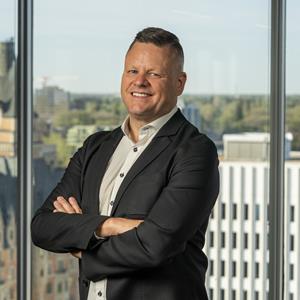From “Scrappy” Beginnings in Scotland to Global Giga Farms: Insights from Former IGS CEO David Farquhar
When David Farquhar joined Intelligent Growth Solutions (IGS) in 2017, he found a company in its infancy, characterized by what he described as “an R&D project with no real business structure.” Under his leadership, IGS transformed from these humble beginnings into a $300 million+ powerhouse in the vertical farming technology sector, with operations spanning four continents and supporting hundreds of crop species.
Reflecting on this journey, Farquhar, who recently stepped down as CEO, shared insights with AgFunderNews. Farquhar was initially drawn to IGS after his retirement and the completion of his wife’s cancer treatment. A partner from a private equity firm introduced him to the company’s innovative vertical farming technology near Dundee, Scotland. As a chef and environmental enthusiast, Farquhar was captivated by the potential impact of this technology.
Upon joining IGS, Farquhar’s primary focus was to determine the project’s viability. His critical questions centered on attracting deep-dive investors, carving a unique market position, and building a top-tier management team. He soon realized that IGS could differentiate itself by focusing on technology provision rather than farm operation, a strategy that resonated with growers who preferred to buy or lease farming technology rather than develop it themselves.
IGS’s journey was not without challenges. Brexit, the COVID-19 pandemic, and the Russian invasion of Ukraine each posed significant hurdles. Despite these obstacles, IGS secured Series A and B funding, the latter round being heavily oversubscribed, demonstrating strong investor confidence.
Farquhar’s leadership extended beyond financial growth. He fostered a workplace culture rooted in purpose and diversity, attracting talent motivated by a commitment to global food supply and climate change. By the end of his tenure, IGS had grown to over 200 employees, with a strong international presence and a clear path to profitability.
Reflecting on his tenure, Farquhar acknowledged a few missteps, including delayed strategic initiatives and hiring decisions. Nevertheless, he emphasized the importance of diverse perspectives and servant leadership in achieving success.
Now, as Farquhar looks to new challenges in sustainability and global welfare, he leaves behind a legacy of innovation and growth at IGS. His journey from combat gardening to leading a global agritech company illustrates the profound impact of visionary leadership in transforming “a scrappy kid” into a mature, industry-leading business.





